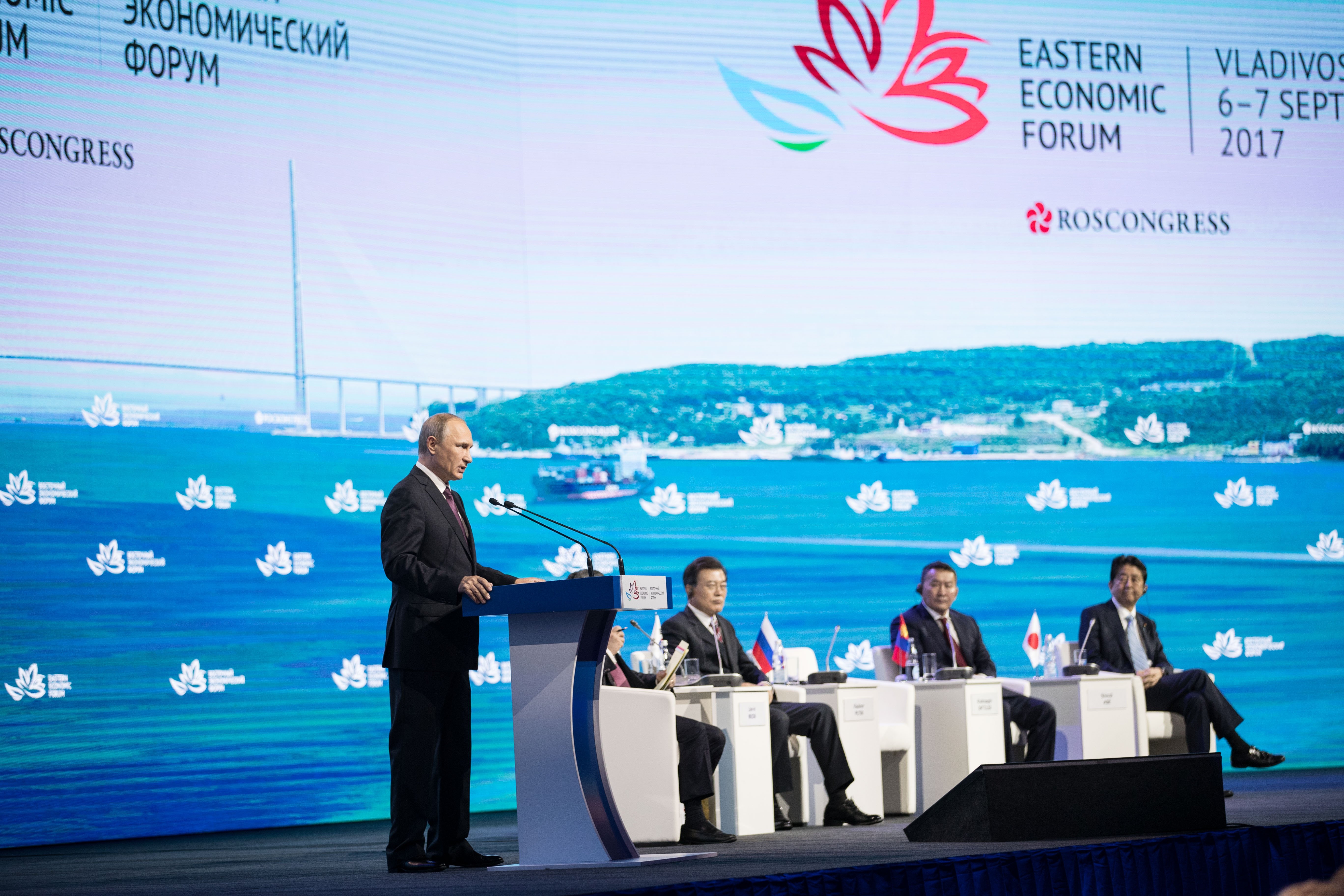China and the 2018 Eastern Economic Forum
- By George N. Tzogopoulos
 0 Comment(s)
0 Comment(s) Print
Print E-mail China.org.cn, September 11, 2018
E-mail China.org.cn, September 11, 2018

The East Asia region is of utmost importance for China. Beyond the influence of Chinese culture, security has been a historical priority, illustrated in the modern era by war with Japan, the Korean War and Sino-Soviet border clashes.
And that remains the basic agenda. The postwar U.S. military alliance with Japan and South Korea, Sino-Japanese disagreements, for example, over ownership of the Diaoyu Islands, Sino-Russian naval drills in the East China Sea and the denuclearization of the Korean Peninsula highlight this.
However, China is not only interested in security as far as East Asia is concerned. Trade and investments are equally significant. In that regard, initiatives such as the Vladivostok Eastern Economic Forum are emerging as significant.
Already in its fourth year, the forum constitutes a platform for the exchange of views, the organization of exhibitions, as well as the signing of business deals. Last year, for example, Alibaba Group and Russia's Sputnik news agency signed a memorandum of strategic international cooperation.
The 2018 Vladivostok Eastern Economic Forum, Sept.11-13, is attracting additional attention because it will be the first time for Chinese President Xi Jinping to attend. At the invitation of his Russian counterpart Vladimir Putin, Xi is expected to participate in both bilateral and multilateral events.
As a strong supporter of free trade, China is advocating the creation of an East Asia Economic Community. Meanwhile, several integration schemes are being discussed in which some or even all East Asian countries and Russia can participate. These are the Free Trade Area of the Asia-Pacific region, which Xi has proposed at APEC summits, the Chinese-led Regional Comprehensive Economic Partnership and the ASEAN's cooperative mechanism with China, Japan and South Korea.
The decision of U.S. President Donald Trump to withdraw from the Trans Pacific Partnership gives Beijing the opportunity to play a leading regional role.
Moreover, China is interested in expanding its Belt and Road Initiative, which is an inclusive mechanism that many countries can join. It is supporting economic integration through instruments such as the Asia Investment and Infrastructure Bank, in which Russia, Mongolia and Vietnam are members with contributions of US$6.5 billion, US$41 million and US$663 million respectively.
Russia, in particular, is seeking closer integration with East Asia, and, more broadly, the entire Asia-Pacific Region. The title of the Forum – The Far East: Expanding the Range of Possibilities – is indicative of this ambition.
From another perspective, Vladivostok is a vital city and port for the development of Sino-Russian economic relations. Inaugurating the Chinese consulate there in 2017, Ambassador to Russia Li Hui said cooperation between Northeast China and Russia's Far East and Siberian regions in economy, culture and tourism could deepen.
Last April, during the annual Boao Forum for Asia, business representatives from China and Russia identified real estate on Russky Island in Vladivostok as offering potential for a joint investment scheme.
On the whole, Xi's presence in Vladivostok and his forthcoming meeting with Putin will further strengthen the Sino-Russian partnership.
According to Chinese statistics, bilateral trade could reach US$100 billion this year. The decision of the U.S. to apply sanctions against Russia due to the Ukraine crisis in 2014, and the ongoing trade war against China, is making the two target countries look for alternative destinations of their products, and it's succeeding.
Against this backdrop, Xi and Putin are expected to take common steps to enhance energy collaboration, typified by the Yamal LNG project and the Power of Siberia outline. Also, this year and next are a time of China-Russia local cooperation and exchange paving the way for new friendship initiatives.
Last but not least, in Vladivostok, China will preview the Beijing 2022 Winter Olympic Games. For the first time, two sport panels have been included in the business program. This presentation will not only discuss China's plans for a successful event but will also sketch out its vision to respect the Olympic Ideal as a driving force for peace and stability in a turbulent region.
George N. Tzogopoulos is a columnist with China.org.cn. For more information please visit:
http://www.ccgp-fushun.com/opinion/GeorgeNTzogopoulos.htm
Opinion articles reflect the views of their authors, not necessarily those of China.org.cn.





